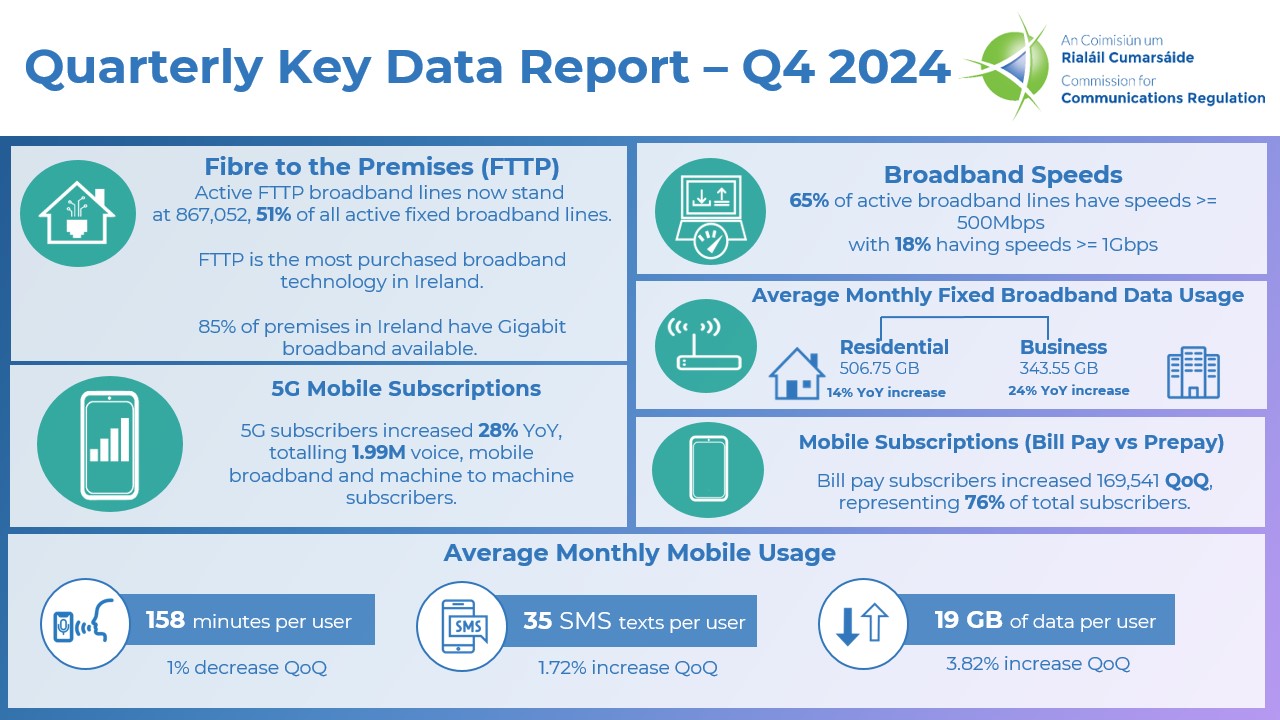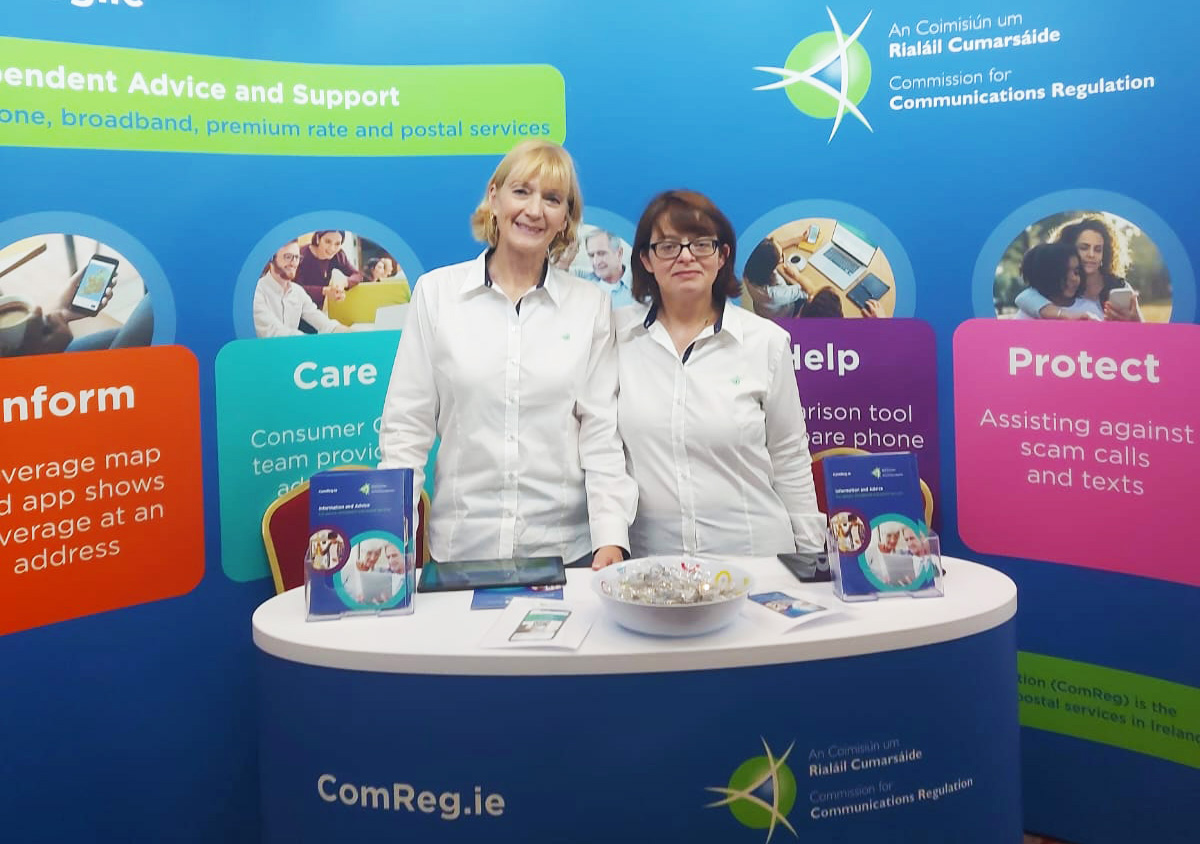ComReg has today published a final Response to Consultation and Decision D15/18 (18/106) in relation to five classes of Non-Geographic Numbers – 1800, 1850, 1890, 0818 & 076.
ComReg has introduced two measures designed to address the cost of using such numbers and also tackle confusion among consumers about the differences between numbers. The changes being introduced by ComReg are:
- Geo-Linking Condition: from 1 December 2019, a call to an 1850, 1890, 0818 or 076 NGN will cost no more than the cost of calling a landline number. This means that if landline calls are included in your “bundle of call minutes” then NGN calls will also be “in bundle”. No separate charge will apply for any NGN call (unless you have used up your bundle of call minutes).
- NGN Consolidation: From 1 January 2022, the five NGN ranges will be reduced to two. The 1850, 1890, and 076 ranges will be withdrawn and the 1800 (Freephone) and 0818 range will remain. This 3 year period is to allow organisations that use NGNs time to prepare.
Telephone numbers are managed by ComReg with the core objective of promoting and protecting the interests of Irish consumers, particularly more vulnerable consumers. In August 2017, ComReg published Consultation 17/70, by which it commenced a review of the five classes of ‘Non-Geographic Numbers’ or ‘NGNs’. This was followed by Consultation 18/65, published in July 2018, and ComReg has today published its final Response to Consultation and Decision in relation to this matter.
NGNs are used by many Irish organisations to deliver a range of voice-based consumer services such as helplines. Unlike a Geographic (i.e. landline) Number a NGN is not linked to a specific location. ComReg gathered evidence which shows that NGNs serve a valued purpose for which there is demand. However the evidence also shows that the NGN platform as currently structured is causing significant harm to many Irish consumers.
The main problem is that the majority of consumers cannot tell the different NGNs apart and do not know, or cannot estimate, the retail charges for calling different NGNs. Many consumers have also experienced “bill-shock” at some time from calling an NGN. This happens because retail tariffs for some NGN calls can be high, particularly when made from a mobile phone. Most NGN calls are also not included in the typical monthly “bundle of call minutes”, which has become the main subscription package offered by Irish telecom operators.
Because many consumers know that some NGN calls are expensive, but don’t know which ones, they often decide not to call any of them or else call them reluctantly – i.e. when given no other option. Over time, this consumer distrust has suppressed the volume of NGN calls. As a knock-on effect, Irish organisations have less incentive to provide NGN-based call lines for their customers which also means that fewer NGN calls are made (some major Irish organisations have already started to move away from using NGNs because of the many customer complaints they have received over the cost of NGN calls).
This downward spiral of cause and effect, if left unchecked, is likely to lead eventually to a point where NGNs are no longer viable. The overarching purpose of the two measures now being taken is to break that spiral and to restore consumer trust and confidence in NGNs. ComReg hopes to significantly improve the functioning of the NGN platform for the benefit of Irish consumers who access services over NGNs and the wide array of Irish businesses, charities, and public bodies that provide those services.
ComReg’s review of the NGN platform involved extensive consumer and organisational surveys, detailed data requests made to industry, and in-depth interviews with organisations that use NGNs.
Finally, ComReg will publish a further consultation on NGN wholesale charges in Q1 2019. These charges may be affecting organisations’ use of NGNs for providing services to consumers. This is of particular concern for 1800 Freephone, where ComReg’s research has shown that many organisations consider the costs to be prohibitive. Any decision on wholesale changes would also come into effect on 1 December 2019 – i.e. concurrent with the Geo-linking Condition.
Find the full response to Consultation and Decision here or find more information on the NGN review here.






